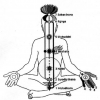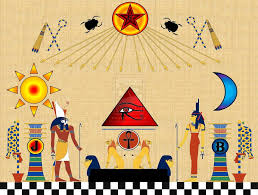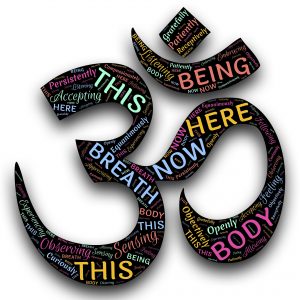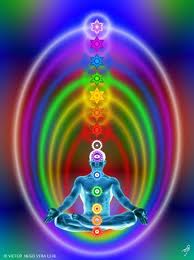Sekhem Heka
£99.00
Description
There are 7 levels of Sekhem Heka
Storm Constantine’s new system, Sekhem Heka, is published in book form through Megalithic Books, and imprint of Immanion Press. Here is an overview of some of the system’s components.
In Ancient Egypt, sekhem literally meant ‘power’ or ‘might’. The term applied to gods and goddesses and was often part of the titles of pharaohs and queens. The sekhem scepter carried by rulers and important officials was a physical representation of their earthly power. In recent years, the word sekhem has been reinterpreted to mean the energy of a healing system named after it, but that meaning is of modern not ancient origin. Sekhem, in its modern sense, is a form of healing that derives from a system called Seichim, which itself is partly a derivative of Reiki. Originally, the word Heka meant ‘magic’ or ‘magical power’, and it was also the name of a god who presided over magic.
This system of healing and self-development derives from Storm’s experience in the healing systems Reiki and Seichim and also in magical practices inspired by Ancient Egypt. Sekhem Heka is a system that incorporates energy healing as well as a structured series of rituals and path workings, focusing upon the energy centers of the body and associated Egyptian god forms. Storm formulated the system for a number of reasons. Primarily, she has a great interest in the goddess Sekhmet as do I and other Egyptian god forms, and have worked with their energy for many years. Once Storm became a Reiki Teacher, and discovered Seichim/Sekhem, she was pleased to discover that some Teachers had combined energy healing with Egyptian symbolism, and was keen to go down that path herself. Secondly, as Reiki initiation paves the way for self-development, Storm wanted to provide a system for her magical students whereby they could combine their studies.
You do not have to be attuned to Reiki or Seichim to be able to use most of the Sekhem Heka system but for those unfamiliar with the term, an attunement is a short procedure, performed by a Teacher who has taken the highest, often called Master, degree of an energy healing system. Attunements are the core of the majority of healing models based on Reiki and its derivatives, during which a person becomes enabled to channel universal life energy (chi or ki) through their body. Thus, the energy they utilize is not their own; it is universal energy channeled through them. It neither exhausts nor depletes you as you work with it. Anybody, whether they’ve been attuned to an energy healing system or not, can perform the meditations and rituals of this system and acquire the benefits from them.
The Origins of Seichim/Sekhem
In the early 1980’s an American gentleman named Patrick Zeigler underwent a spontaneous attunement while in Egypt which occurred within the great pyramid of Giza. It was an experience similar to that of Master Mikao Usui when he first acquired the ability to channel Reiki. Eventual, and some time later after having taken his Reiki training, Patrick formulated a method in which he was able to pass on the same energies that he himself had received. Over the years, as Reiki initiates learned how to work with Seichim, the two systems became fused, and now there are many crossovers between them, not least that Seichim attunement involves the use of Reiki symbols. (This is presumably because Patrick Zeigler used adapted Reiki attunements when formulating his initial Seichim system). Although Seichim and Reiki are mostly regarded as separate systems, channeling different energy ‘rays’, storm does not think the two can be separated, for the simple reason of the shared symbols. If Seichim attunements were performed without any recourse to Reiki methods, then that might not be the case, but they are, and this cannot be overlooked.
As with Reiki, many different branches of Seichim sprang up, and one of these was Sekhem. Although this was a term originally used by Patrick Zeigler, who has experimented with various different names for his system, it has been adopted by other Teachers, some of whom have greatly added to or changed the system. Sekhem, typically, incorporates the Egyptian goddess, Sekhmet, who was a ferocious lioness deity in ancient times, but who also had a healing aspect. Sekhmet’s priests were also physicians, so it’s easy to see how this goddess fits neatly into the Sekhem healing system. It is Storm’s strong belief that any experienced practitioner can connect to Sekhem Heka, through regular meditation and openness to its manifestation.
If you already regularly meditate or perform spiritual rituals, it should come easily. If you have taken Teacher degree Reiki or Seichim, the practices will undoubtedly feel more familiar to you, but to get positive results you simply need to want to experience them.
Shef – The Energy System of the Body
As with most other energy healing systems, Sekhem Heka works with the seven energy centers within the body, which in this system are referred to as the shef – the whole system – or shefats, the individual centers. These words derive from an Ancient Egyptian term that means power, energy, or vigor. The energy centers are commonly known in most systems as the chakras, the idea of which derives from Ancient India. The centers are visualized as spheres or lotuses of coloured light, ranging through the spectrum from violet to red. The Correspondences of the Shefats There are seven degrees in Sekhem Heka, and at each degree you will work with one of the seven shefats, beginning with Sen-t, the base shefat, which can be regarded as the seat of the animal self, survival fears, the fight or flee response. Qemhu, the crown shefat, is regarded as the ‘highest’, being connected with the higher self, spirituality and higher consciousness. Here is a brief overview of the shef.
The Base Shefat
Sen-t (ground, basis, foundation) (sen-tay)
This shefat is fiery red in colour and is situated at the base of the spine. Its element is earth and it is associated with the sense of smell. It also relates to the inner adrenal system that controls the ‘fight or flight’ response. Sen-t concerns survival fears, basic instincts, the animal self, personal stability, matters of security.
The Lower Stomach or Sacral Shefat
Khept-ti (male and female genital organs) (kep-tee)
Khep-ti is situated above Sen-t, below the navel and relates to the sexual organs. Its colour is a radiant orange, its element is water and it corresponds to the sense of taste. This centre is concerned with sexuality, sexual energy, desire, feelings, creativity, pleasure, self-confidence, and general well-being.
The Solar Plexus Shefat
Hati (will, disposition) (haa-tee)
Hati is located below the rib cage and relates to the digestive system and the pancreas. It is the shefat of the sun, and it is thought that the body absorbs solar light through it. Therefore, it can be seen as your personal sun, the seat of your personal power. In colour it is a vibrant golden yellow, and its element is fire. It corresponds to the sense of sight and relates to will power, personal power, complex emotions, perseverance and determination. Here is born the ability to project the personality and affect your reality.
The Heart Shefat
Ab (heart)
Ab is the centre of the body; three above, three below. It is located in the chest and relates to the thymus gland, which regulates the lymphatic system. Its colour is green, the colour of healing, and it relates to the element of air and the sense of touch.
The Throat Shefat
Ashash-t (throat, gullet) (aah-shash-tay)
Ashash-t is situated in the throat and relates to the thyroid gland and metabolism. Its colour is blue and its element is ether. It relates to the sense of hearing.
The Third Eye Shefat
Aar-t (a goddess of the uraeus) (aah-tay)
Aar-t and Qemhu (the Crown) form the two highest centres of the energy body. Both can be said to be the seat of the ‘third eye’, but it is probably best to imagine them as a whole with regards to this function. Aar-t is situated in the middle of the forehead, above and between the eyes. It relates to the pituitary gland and extra-sensory perception. Its colour is indigo.
The Crown Shefat
Qemhu (crown of the head) (Kem-oo)
Qemhu is located in the centre of the head, although the shefat is often visualised as existing just above the crown, outside the body. Its colour is generally seen as violet, although it is also pure white light, the entire spectrum. It corresponds to the pineal gland. This centre relates to the seat of your consciousness, the higher self. It is the shefat of empathy and true bliss through understanding. In Qemhu all the aspects of the lower shefats are united. It is their source of energy.
Sekhem Heka 1st Degree – (Ha-aah)
Within Sekhem Heka Level 1 there are two neteru. The first is the lioness-headed neter Sekhmet, and the second is the neter of magic, Heka. The symbols introduced at this stage include Heka and Tcheru (cheh-roo), the infinity symbol. The Heka symbol equates to the Cho Ku Rei, or power symbol of Reiki that is learned at first degree. This is the glyph of the neter’s name, as well as being part of the name of this system. The shefat associated with this degree is Sen-t, situated at the base of the spine.
Sekhem Heka 2nd Degree – (Sen-nu)
The neter of this degree is Isis. It involves the second shefat, Khep-ti, which is situated in the belly and associated with sexuality, desire, passion and creativity. The symbol for this degree is Tchem-Aset (chem-az-ett), the ‘wings of Isis’, which is representative of both creativity and protection.
Sekhem Heka 3rd Degree – Khemt-tu
The neter connected with this degree is Ra, the sun god. The third shefat, Hati, lies at the solar plexus, and is associated with will power and how we project our personality to the world. Khemt-tu also includes the five Sekhem Heka principles, which complement the Reiki Principles devised by Mikao Usui. Each principle involves a meditation, during which you examine aspects of your conditioning, the things that make you the person you are. The symbol for Khemt-tu is Aaten, the ancient symbol of the solar disk.
Sekhem Heka 4th Degree – Fty-nu
The fourth degree centers upon Ab, the heart shefat, connected with matters of emotion, unconditional/universal love and emotional expression. The neter for it is the cat-headed goddess, Bast, in her aspect of a goddess of love. The symbol is Per-Ahu (pair-a-hoo), which means ‘the house of the heart’.
Sekhem Heka 5th Degree – Tu-noot
Maat, the neter associated with this degree, is the goddess of cosmic truth. The shefat of Tu-Nut is Ashash-t, the throat, which is connected with communication. The melding of Maat and Ashash-t promotes honest communication, with oneself and others. The symbol for Tu-Nut is Tchet-it (chet-it) meaning ‘the spoken word’.
Sekhem Heka 6th Degree – Sas-nu
The neter of Sas-Nu is Wadjet, the cobra goddess. Her symbol, the uraeus, is the serpent found on the crowns of Egyptian kings and queens. Wadjet as a serpent represents the third eye, the seat of intuition, clear sight and self awareness. The shefat Aar-t (aah-tay), found within the ‘third eye’ is connected with these qualities. The symbol for Sas-Nu is Ma-her (ma-hur), which represents a flash of light emanating from the Eye of Horus. This is because Wadjet, known also as Uatchit, is closely associated with the Eye, itself representative of inner sight.
Sekhem Heka 7th Degree (Teacher) – Sefekh-nu
Nuit (noo-it), the neter of sky and stars, is representative of the path of magical seeking, as well as the higher self and knowledge. Sefekh-Nu is the ‘Master Degree’ of Sekhem Heka. Its shefat is Qemhu, the crown, which is connected with the idea of the higher, spiritual self. The master symbols of this degree are Tcher-Sekhem (chair-sek-em) and Aakhu (aah-koo), which are used for the passing on of attunement to this level.
You must be logged in to post a review.







Reviews
There are no reviews yet.